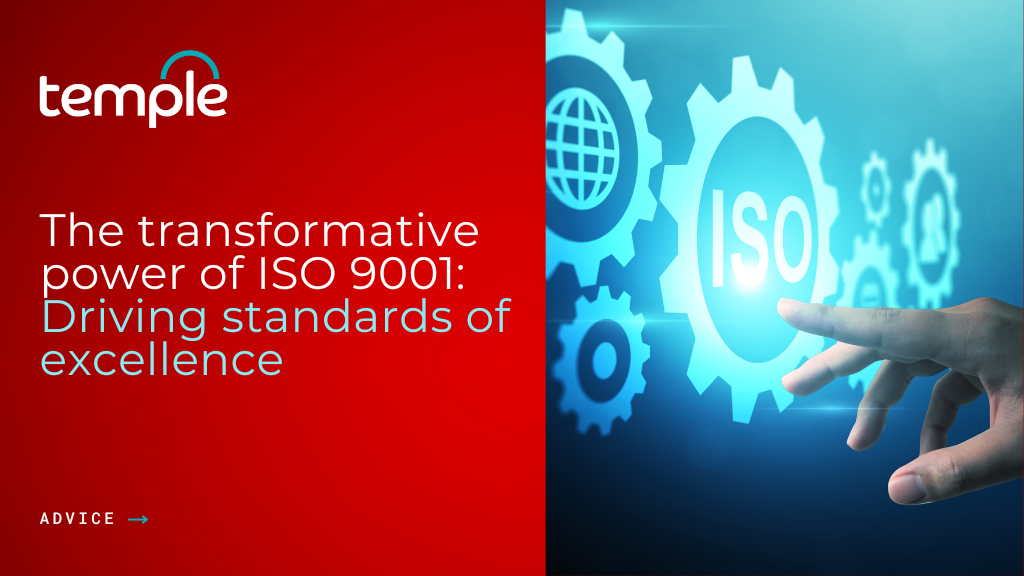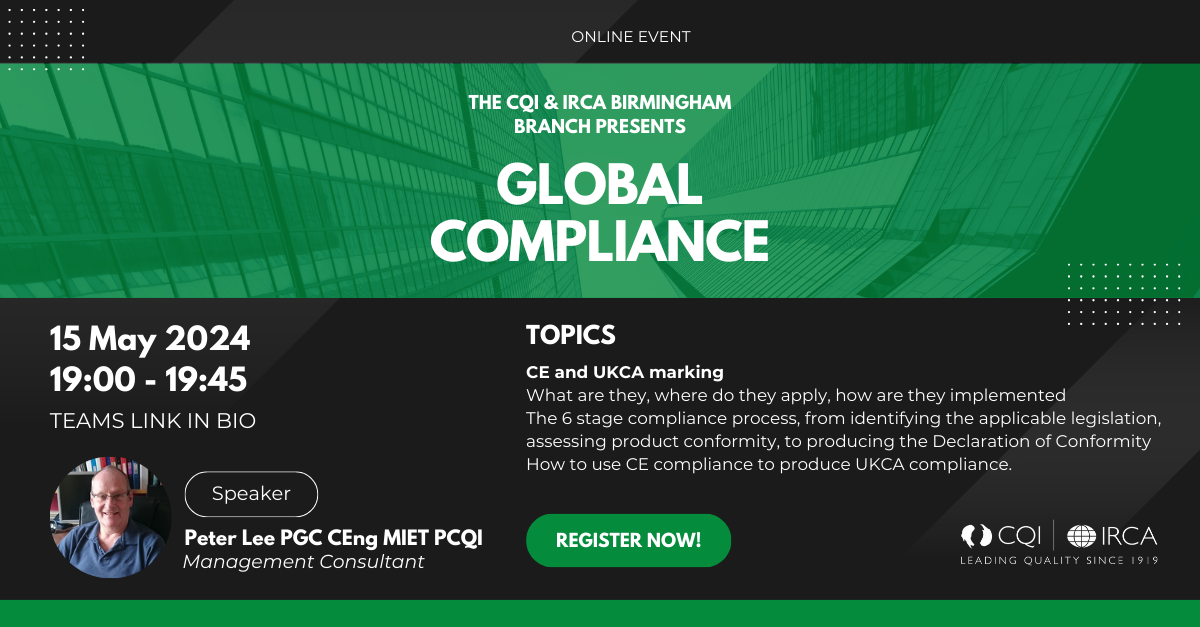
The PSTI Act, a new cyber security law in the UK, takes effect today.
The 29th of April 2024 is an important date for IoT manufacturers and anyone selling connected devices in the UK. This brand new and world-leading

In today’s rapidly evolving global marketplace, businesses face relentless competition, shifting consumer demands, and constant technological advancements. To thrive in this dynamic landscape, companies must prioritise quality, efficiency, and customer satisfaction. One indispensable tool in this pursuit of excellence is the International Organisation for Standardisation’s ISO 9001 certification. More than just a badge of honour, ISO 9001 is a transformative framework that propels businesses toward enduring success.
Temple QMS offers training and consultancy for ISO 9001 including the following:
Foundation Course – 1 Day
Internal Auditor Course – 2 Days
Lead Auditor Course – 5 Days
Consultancy to help you achieve Certification
ISO 9001, the globally recognised Quality Management System (QMS) standard, lays the foundation for consistency and quality in products and services. By implementing standardised processes, businesses can significantly reduce defects, enhance product reliability, and improve customer satisfaction. Consistency in quality not only fosters customer trust but also minimises operational costs, leading to increased profitability.
In the digital age, where customer experiences can make or break a brand, ensuring customer satisfaction is paramount. ISO 9001 emphasises a customer-centric approach, encouraging organisations to identify customer needs, meet their expectations, and exceed them whenever possible. By aligning products and services with customer requirements, businesses can build lasting relationships, foster loyalty, and secure repeat business.
One of the core principles of ISO 9001 is the focus on continuous improvement. By establishing a culture of ongoing evaluation and enhancement, businesses can adapt swiftly to market changes and customer preferences. This iterative process not only keeps businesses relevant but also fosters innovation, enabling organisations to stay ahead of the competition and identify new opportunities for growth.
ISO 9001 certification is universally recognised, making it easier for businesses to participate in global trade. Many international partners and clients prefer or require suppliers to be ISO 9001 certified, as it assures them of the supplier’s commitment to quality and customer satisfaction. With ISO 9001 in place, businesses can access new markets, attract international clients, and establish a strong global presence.
A well-implemented QMS empowers employees by providing them with clear processes, defined roles, and responsibilities. When employees understand their contribution to the organisation’s overall quality objectives, they feel a sense of purpose and pride in their work. Engaged and motivated employees are more productive, creative, and committed to delivering exceptional results, ultimately driving the business toward success.
In the modern business landscape, where customer demands are high, and competition is fierce, ISO 9001 certification is not just a choice but a strategic necessity. By embracing the principles of ISO 9001, businesses can establish a culture of quality, customer satisfaction, and continuous improvement. This not only enhances their reputation but also paves the way for sustainable growth and enduring success.
As trainers, it’s our responsibility to champion the cause of quality management and encourage businesses worldwide to adopt ISO 9001. By doing so, we can contribute to a global business ecosystem where quality is not just a goal but a fundamental cornerstone upon which thriving enterprises are built.

The 29th of April 2024 is an important date for IoT manufacturers and anyone selling connected devices in the UK. This brand new and world-leading

Dave Treadwell, VSUK Quality Manager and subregion Coordinator for VSNE covering Holland and Germany, takes us through his experience of becoming a CQI Fellow and

Temple QMS is delighted to be supporting the roll out of new grant funding in the Shropshire region. We will be supporting SME manufacturing businesses

Global Compliance – Online event This presentation from Management Consultant Peter Lee, will be held 15 May 2024 – 19:00 – 19:45 CE and UKCA